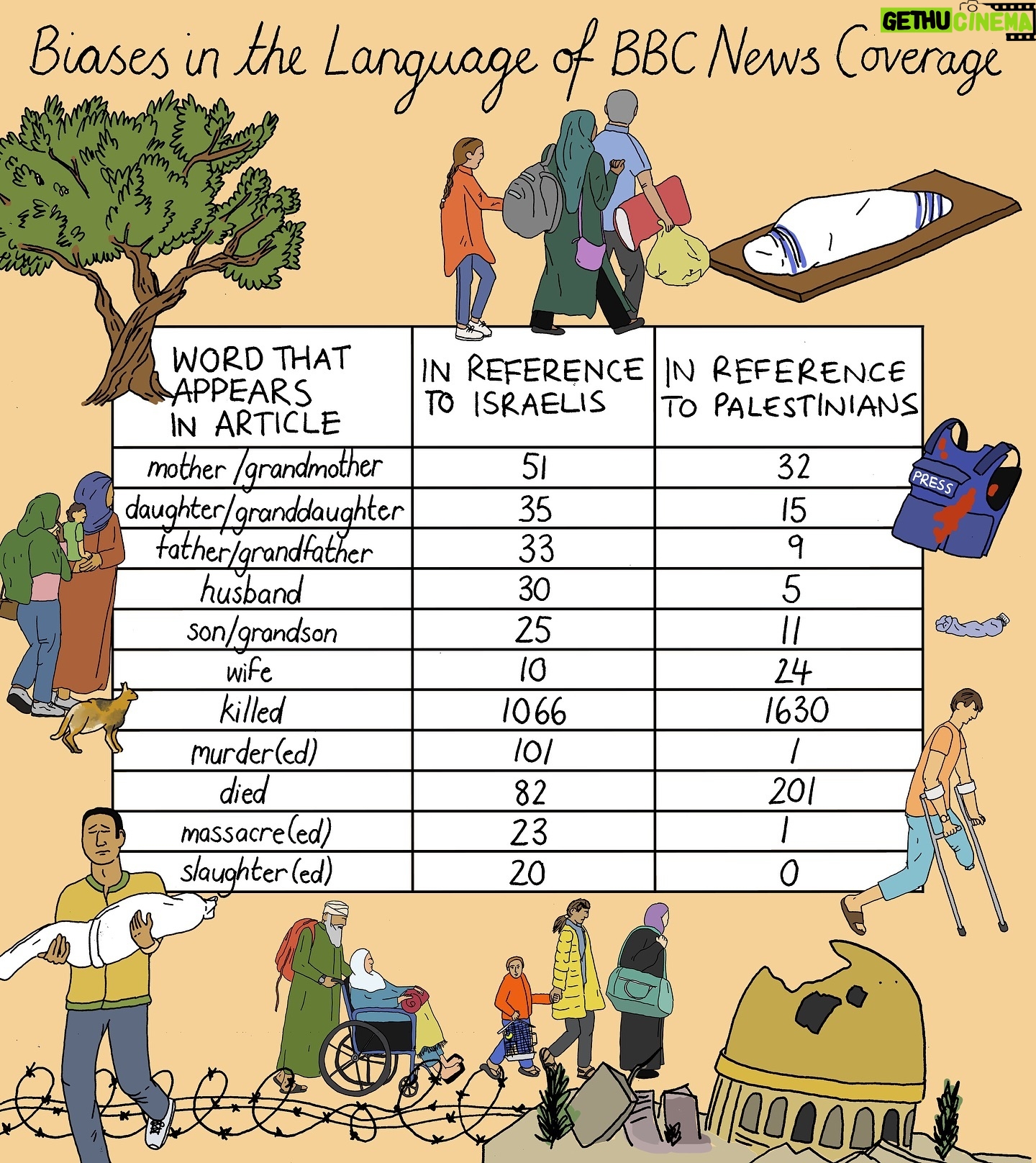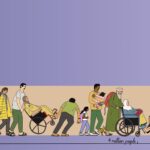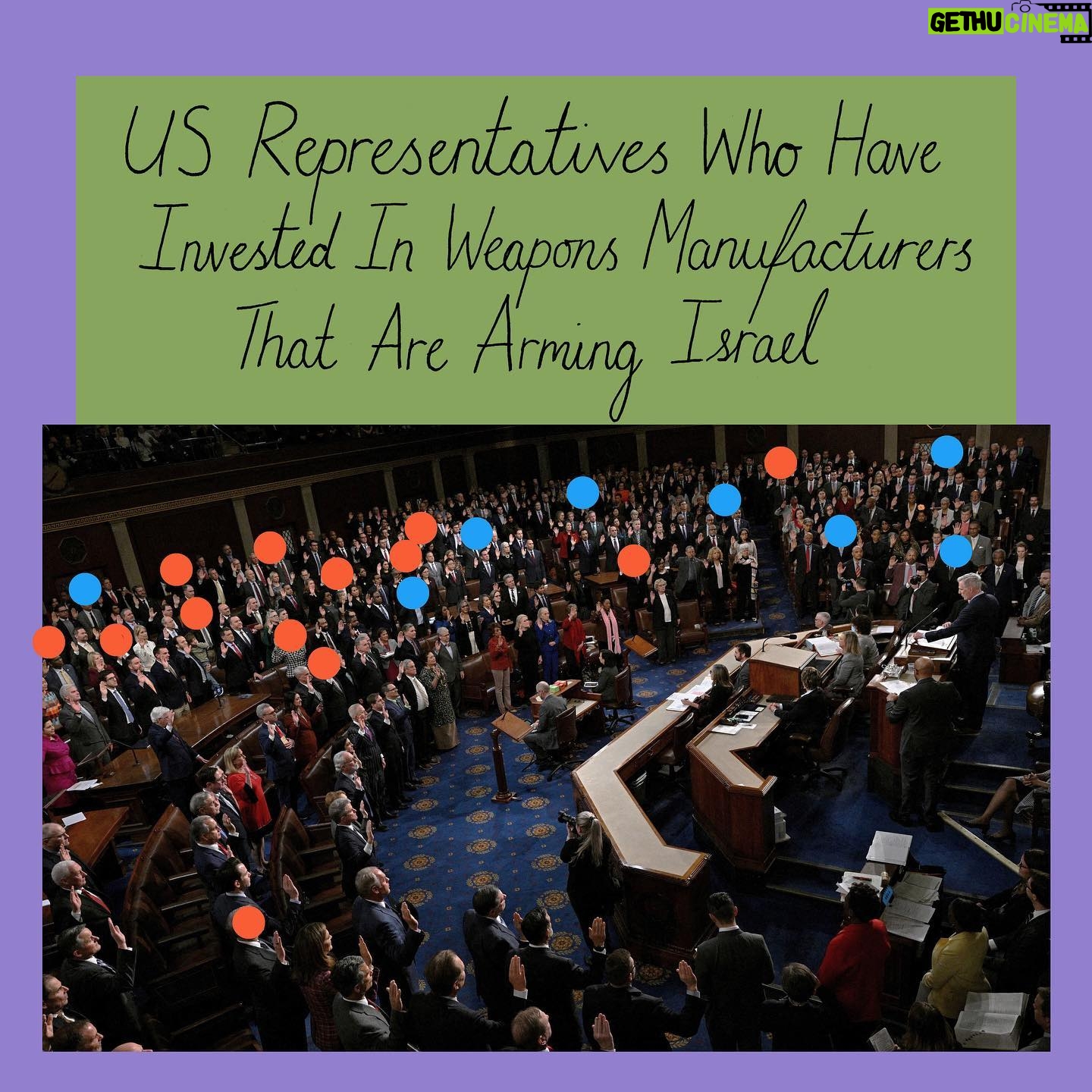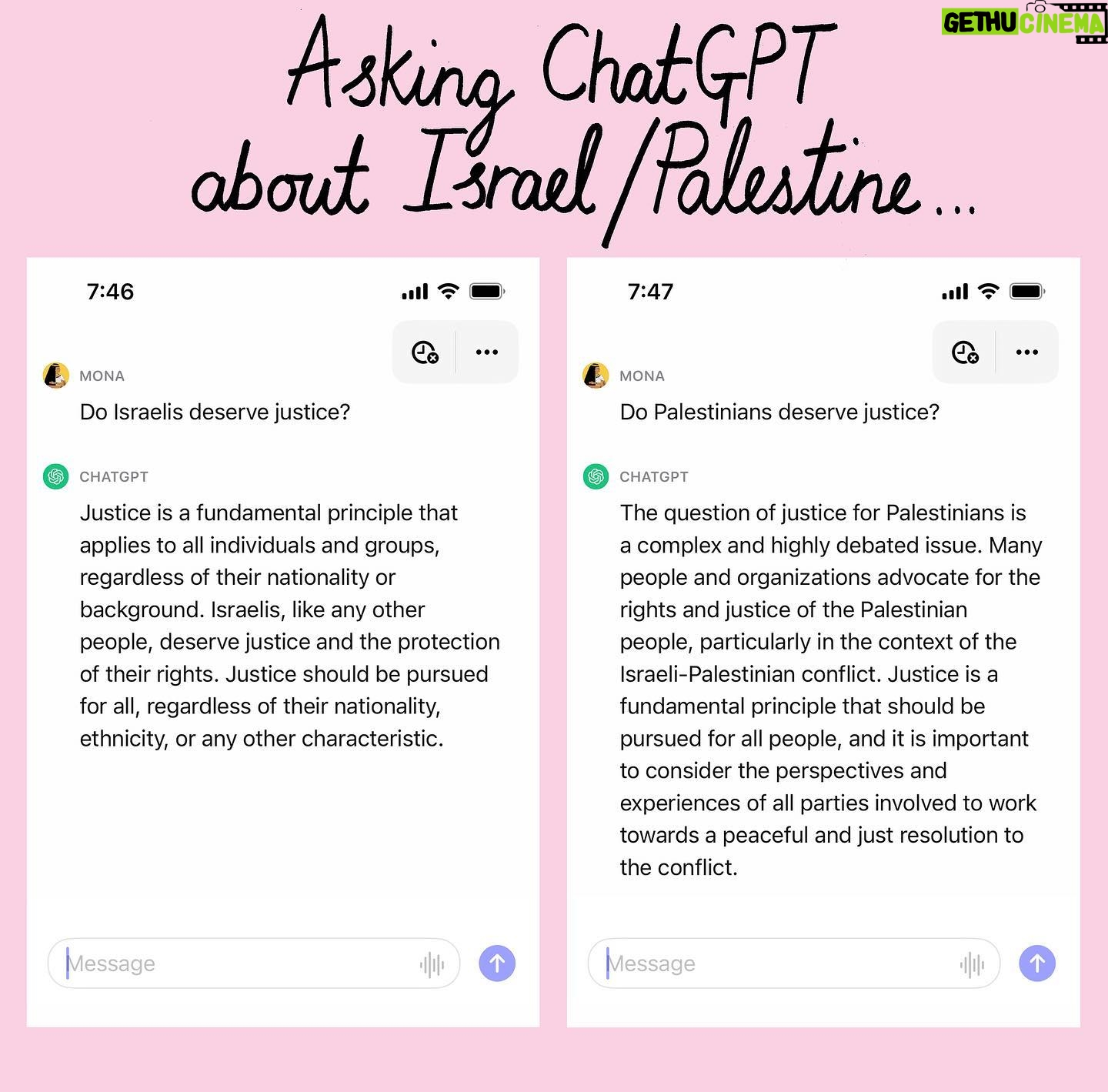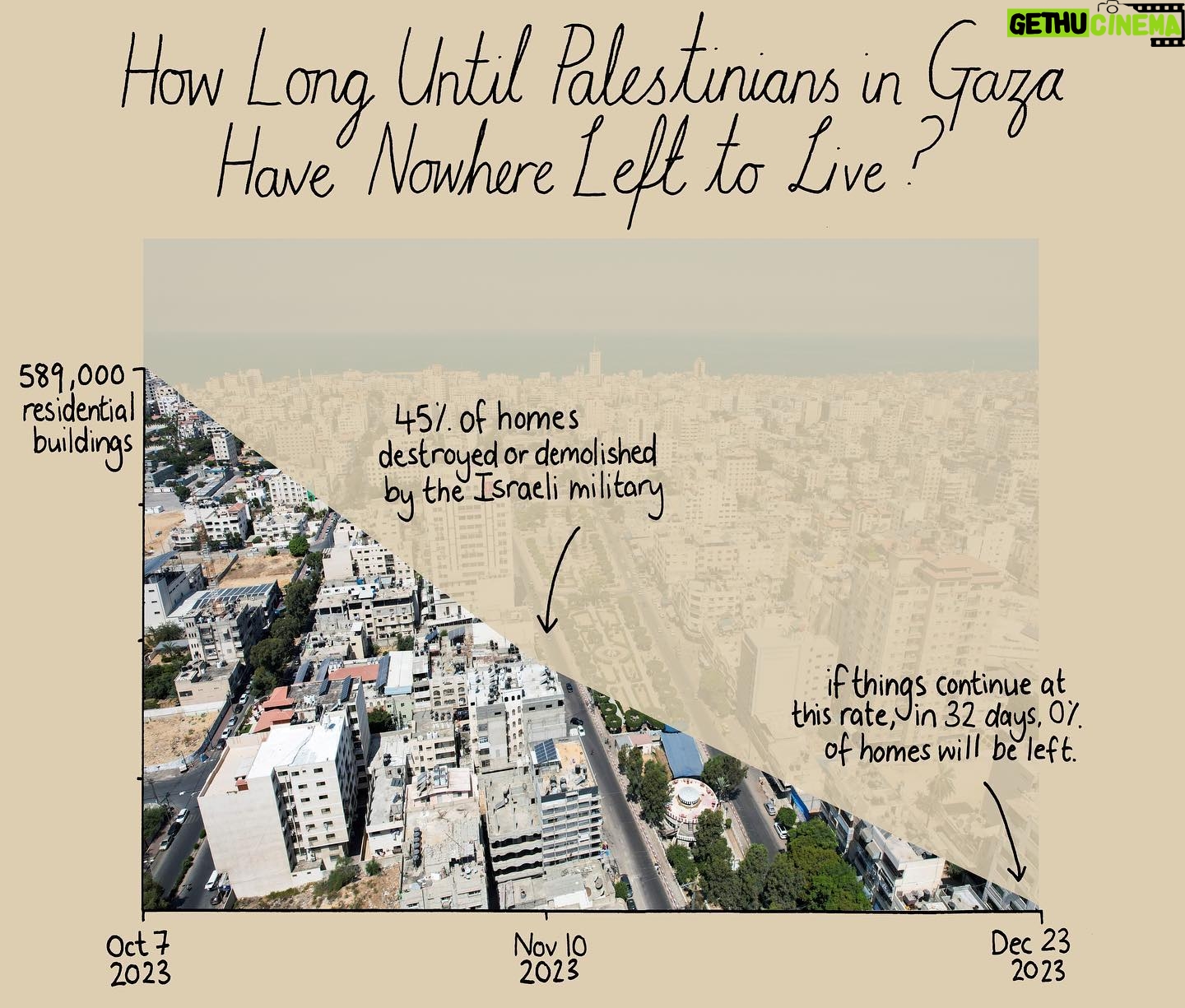Mona Chalabi Instagram – While Israeli victims are documented as people who were loved, Palestinians are uprooted, even in death. They’re not described as fathers or mothers, daughters or sons – they’re simply dead bodies. This summary doesn’t fully capture all the dehumanisation that is often present in the language of journalism. For example, Palestinian deaths are often mentioned in the context of vengeance (“retaliation”/“retaliatory”/“retaliated” appear 190 times in this dataset) and, unlike Israeli deaths/hostages, these victims are rarely mentioned by name.
Here are some specific examples of how BBC News uses language to minimize Palestinian suffering:
* “Some 1,200 people have been killed in Israel, while more than 1,000 have died in retaliatory air strikes on Gaza.”
* “Israelis reject any comparison between the way Hamas kills civilians and the way Palestinian civilians die in their air strikes.”
There are only a few words where Palestinians get more mentions; “killed”, “died” (hardly surprising given that the Palestinian death toll is about 25x higher than the Israeli one at this point) and “wife” (again, I don’t find this surprising since the media is always much more interested in Arab patriarchies than Western ones).
This analysis is based on the majority of published BBC articles relating to Palestine/Israel, scraped between 10/7 and 12/2 by Jan Lietava (@yan.json) and Dana Najjar (@jarz_d), including 672 articles and 4404 posts in livefeeds. 1485 documents were automatically tagged as containing sentences relating to death, which were then individually read and manually tagged, based on whether they talked about Palestinians, Israelis, both or neither. The sentences were then filtered by mentions of words in the table above. | Posted on 29/Dec/2023 21:32:49

